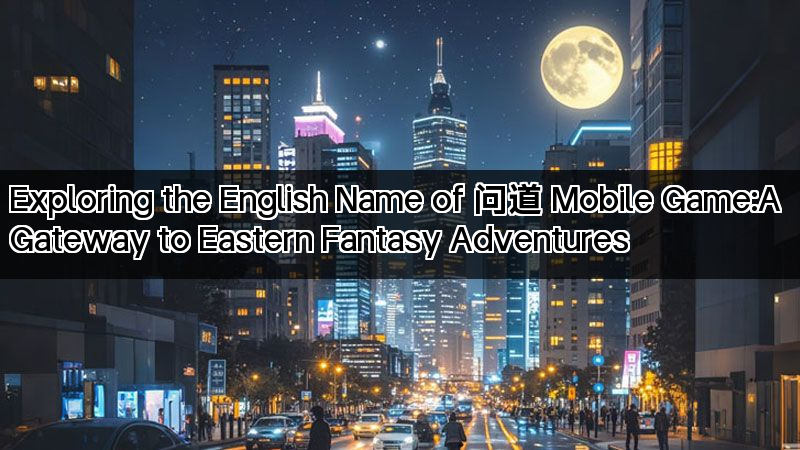来源: 更新:2025-03-30 16:51:00
用手机看
"问道" (Wèn Dào), a highly popular Chinese fantasy MMORPG, has captivated millions of players with its rich Taoist-inspired lore, strategic turn-based combat, and immersive open-world gameplay. However, for international players, one of the most intriguing aspects is its English name—how does this culturally nuanced title translate to a global audience?
In this article, we delve into the English designation of "问道" mobile game, examining its branding choices, cultural significance, and how it represents the game beyond the Chinese-speaking market.
Unlike some mobile games that retain their original Chinese names (e.g., "Genshin Impact" as "Yuán Shén"), "问道" takes a different approach. Its official English title is "Tale of Immortal."
This translation is both a departure and an adaptation:
Directly translating "问道" as "Seeking the Tao" might:
By choosing "Tale of Immortal," the developers (LightSpeed & Quantum Studios) ensured:
"问道" is deeply rooted in Chinese mythology and Xianxia (immortal heroes) tropes. The game’s world revolves around:
The English name, while simplified, retains the essence of transcending mortal limits—the core fantasy of Xianxia literature.

Other Chinese RPGs have taken different approaches:
"Tale of Immortal" strikes a balance—it’s not a direct translation but effectively communicates the game’s theme.
Since its international release, "Tale of Immortal" has gained traction in Southeast Asia, North America, and Europe. However, some players note: ✅ Pros:
❌ Cons:
Still, feedback from international gamers suggests the title does its job—inviting players into a world of martial arts, mythical beasts, and immortal quests.
The English name "Tale of Immortal" may not be a direct mirror of "问道," but it successfully bridges cultural gaps while preserving the game’s essence. For players worldwide, it serves as an entry point to a rich, Eastern fantasy experience.
As "问道" continues expanding its global footprint, its English branding ensures that the journey of immortal cultivation remains accessible—and enticing—to all.
Would you prefer a more literal translation, or do you think "Tale of Immortal" works best? Let the Dao (or the Immortal tale) guide your answer!